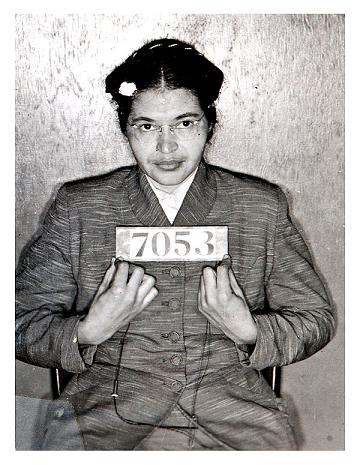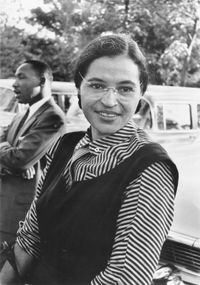


Rosa Parks Quiz
Rosa Parks Pictures
Rosa Parks Biography
When Rosa Parks refused to give up her seat to a white man forty years ago on December 1, 1955, she was tired and weary from a long day of work.
At least that's how the event has been retold countless times and recorded in our history books. But, there's a misconception here that does not do justice to the woman whose act of courage began turning the wheels of the civil rights movement on that fateful day.
Rosa Parks was physically tired, but no more than you or I after a long day's work. In fact, under other circumstances, she would have probably given up her seat willingly to a child or elderly person. But this time Parks was tired of the treatment she and other African Americans received every day of their lives, what with the racism, segregation, and Jim Crow laws of the time.
"Our mistreatment was just not right, and I was tired of it," writes Parks in her recent book, Quiet Strength, (ZondervanPublishingHouse, 1994). "I kept thinking about my mother and my grandparents, and how strong they were. I knew there was a possibility of being mistreated, but an opportunity was being given to me to do what I had asked of others."
The rest of Parks' story is American history...her arrest and trial, a 381-day Montgomery bus boycott, and, finally, the Supreme Court's ruling in November 1956 that segregation on transportation is unconstitutional.